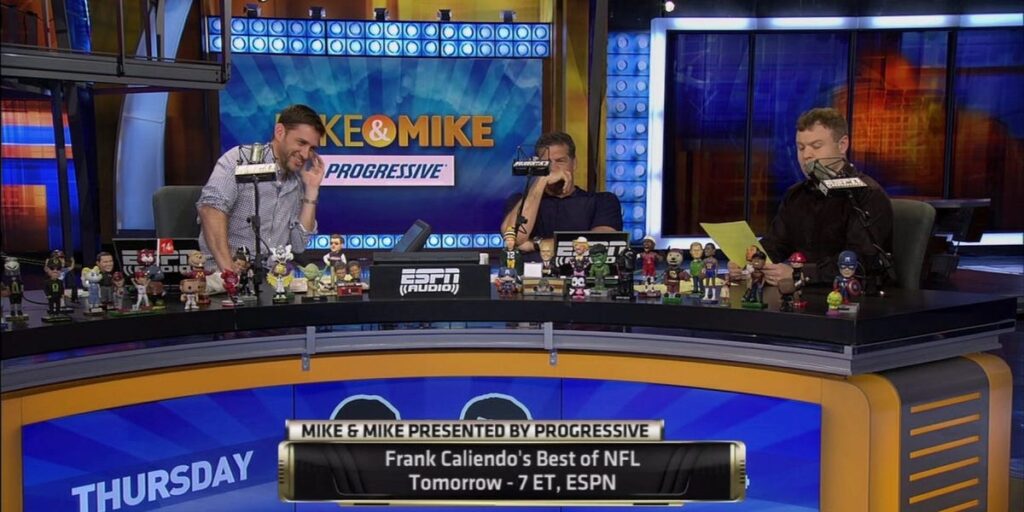ESPN has an unmatched portfolio of sports rights, personalities who’ve become household names, and one of the biggest social-media followings of any brand.
But the so-called “Worldwide Leader in Sports” is lagging in a critical growth area: podcasts. And its executives aren’t afraid to say so.
“We have a lot of work to do on podcasting,” Burke Magnus, ESPN’s president of content, said in a recent interview with Business Insider.
“There just really hasn’t been anything that has cut through,” Magnus added. “And I think that has been a matter of poor prioritization, to this point.”
To Magnus’ dismay, the sports-media giant mostly missed out on the podcast boom, even though it was well-positioned. ESPN Radio launched in 1992, decades before podcasts went mainstream, and had long been a destination for sports pundits. However, ESPN has just six of the top 50 sports podcasts on Spotify — including two in the top 35.
Although many ESPN alumni have made hit podcasts elsewhere, the network’s most haunting loss has to be Bill Simmons. The podcasting pioneer, who claims to have the most downloaded sports podcast ever, left ESPN in 2015 and soon after launched podcast-focused sports and pop-culture site The Ringer, which he sold to Spotify in 2020 for around $200 million.
Another success story is Colin Cowherd, who left ESPN for Fox Sports in 2015 and started podcast company The Volume in 2021. Cowherd now works with Golden State Warriors star Draymond Green and — ironically — current ESPN personality Shannon Sharpe.
Sharpe isn’t the only ESPN star with a podcast that’s not affiliated with ESPN. His “First Take” counterpart Stephen A. Smith — who’s unquestionably ESPN’s biggest personality — has his own podcast with iHeart.
ESPN may have underestimated the power of podcasts, but Magnus is ready to change that.
“I would like to make it a big priority,” he said.
ESPN’s 3-part turnaround plan for podcasts
In Magnus’ mind, there are three main ways ESPN can make its podcast business more successful.
The first is by bringing podcasts that exist outside of ESPN’s ecosystem under the network’s umbrella. That would be a departure from the sports giant’s long-held strategy of giving podcasts to current employees who may be less experienced with the medium, Magnus said.
“Podcasting is a specific talent — it is not like, just because you’re good on television, you’re going to be good in podcasting,” Magnus said. “There are people out there who are very entertaining and are very successful and have very big audiences who are just in the podcasting space, or primarily in the podcasting space.”
ESPN also plans to prioritize hiring employees who can produce content across platforms, like star NBA reporter Shams Charania, who joined the network this week. Magnus confirmed that Charania, who had hosted a TV show for FanDuel TV, will have a podcast with ESPN.
Lastly, Magnus said he’ll still keep an eye out for current ESPN talent who could host podcasts. That sentiment may seem to clash with the company’s recent decision to drop longtime NBA reporter and podcaster Zach Lowe. Magnus said that decision came down to financial pressure.
By executing this three-part plan, Magnus believes ESPN can better compete with companies like The Ringer and The Volume — even if it took a harder route by letting their eventual founders leave.
“If we rope all three of those things together, I think we can have a meaningful podcasting business in the not-too-distant future,” Magnus said.
Read the full article here


